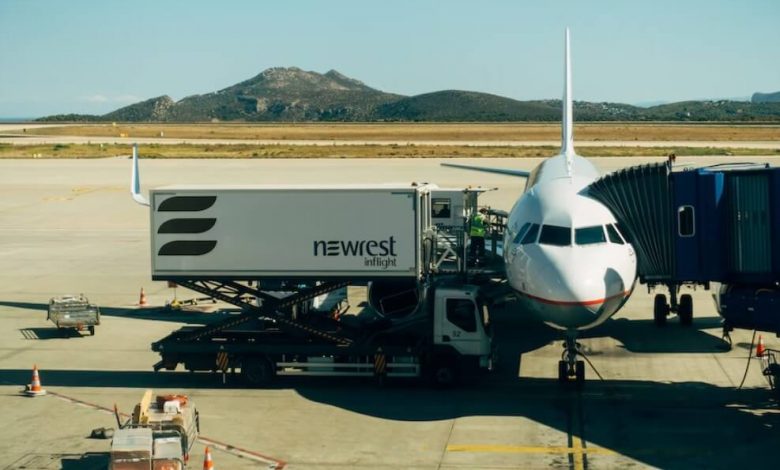The Future of Sustainable Air Cargo

Air freight is a global transport system vital to the world economy. As cargo transportation, in general, and air freight is on the decline, thought needs to be given to how sustainable this mode of transport could be.
Air cargo is a complex network of broadly defined supply chains that typically rely on air shipment, rather than rail or sea. It includes not just USPS, Fed Ex, and UPS, but also airport services, such as baggage handling and aircraft fueling.
Climate Change, Emissions, and Capacity
Air freight emissions are increasing and rising steeply as the growth rate outpaces ground systems’ capacity for handling goods.
The current governance structure does not cover air cargo or address its role in the carbon accounting system. The uptake of low-carbon technologies by the global air industry has been remarkably slow.
Lower Emissions, Improved Efficiency, and Brand Reputation
Sustainable air cargo is a strategy for reducing the environmental impact of air freight. It includes such initiatives as vehicle fuel efficiency, efficient practices throughout the supply chain, reduced emissions through better flight planning, and the use of lightweight materials in aircraft designs.
In addition to addressing the climate impacts of air cargo, sustainable practices can also reduce emissions by ensuring that more packages are transported on single flights.
This can be achieved by increasing supply chain efficiencies and promoting consolidation programs at origin and destination airports.
A smaller number of larger aircraft carrying more packages can have a lower total emissions footprint than an over-capacity fleet with many small aircraft.
When it comes to brand recognition, going green also makes sense. There are plenty of quick tips for better air cargo media coverage, but if you can add that you are serious about sustainability, you’ll help bolster that image across the markets you serve.
Jobs and Training
Sustainable air cargo can positively affect employment, particularly in regions where air cargo is already a major employer.
Sustainable air cargo practices require advanced skills and technical know-how in the design and operation of aircraft and the development of new processes throughout the supply chain.
Training can raise productivity and profitability, from advanced aircraft operations to design to material science.
One way to ensure that freight moves via sustainable cargo practices are to include training requirements for and certification of pilots, mechanics, and field representatives who will perform sustainable air cargo services.
The Challenges of Implementing Sustainable Air Cargo
The global environmental impacts of air cargo can be reduced through sound business and technical practices, but more than that, the sustainability of air cargo can be made attainable. This will require rethinking how we use air cargo services on the ground and in the skies.
Among other things, this will involve a shift away from the ground to sky movement of goods, increased collaboration between carrier networks to deliver more payloads on single flights, and more efficient use of existing infrastructure and realigning airport facilities in ways that are efficient for air freight as well as passengers.





